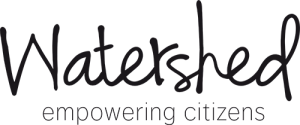Countries
Watershed works at international level and in six countries. Watershed will focus its interventions most intensively in Uganda and Kenya, where a full range of interventions from local to national scale will be undertaken. In Mali, Ghana, Bangladesh and India, a more limited set of context-specific and strategic interventions will be undertaken.
Bangladesh
In Bangladesh, the programmes work with CSOs influencing local government public WASH budget. These CSOs focus on social inclusion in marginalised groups such as the river nomads in Bhola, looking at power relationships within these societies and determining the effects on access to WASH services. Also being developed in Bangladesh are gender-sensitive WASH budget monitoring and analysis tools. Evidence generated with these tools is used to improve advocacy messages, for equity and resource allocation to the neediest.
Ghana
In Ghana, focus is on social inclusion of marginalised groups. Strengthening the voice of community WASH advocates and engagement with local government. The perception and attitude of citizens towards WASH and IWRM can be attributed to a lack of information, clarity of roles and limited capacity of management teams. Bridging the knowledge gap of citizens on WASH and IWRM in existing and emerging WASH policies will improve the WASH situation in the rural communities to ensure sustainability of WASH and IWRM service delivery and facilities.
India
In India, the focus is on holding WASH service providers to account and building the capacities of CSOs by helping local partners organisations to understand budgeting and financing for WASH and IWRM. The states of Bihar and Odisha have prioritised WASH as a developmental objective and designed a programmatic framework in line with national programmes. National guidelines prescribe local water security planning and the creation of village water and sanitation committees to manage local WASH schemes. These CSOs focus on social inclusion in marginalised groups such as the low-caste Mahadalits in Bihar, looking at power relationships within these societies and determining the effects on access to WASH services. Another focus is on the documentation of case studies about the success and failures from WASH interventions, demonstrating the importance of integrating WASH with water resources management and climate adaption.
Kenya
In Kenya, focus is on social inclusion and citizens’ involvement in water resources management. Local partners Neighbourhood Initiative Alliance and Kenya Water for Health Organization are convening stakeholders to develop fact-based materials for coordinated advocacy at local and national levels. Civil society organisations [CSOs] in Kenya are also focusing on social inclusion in marginalised groups such as the Masai in Laikipia. The CSOs are looking at power relationships within these societies and determining the effects on access to WASH services.
Mali
In Mali, focus is on waste management, monitoring water quality and related institutional weakness.
Particularly where policies and laws that help to coordinate the management of solid and liquid waste and help to protect water quality in water bodies are not enforced. Water quality is hardly monitored regularly and systematically. Watershed trains CSOs to collect data on water quality. The analyses are shared through multi-stakeholder forums to help mobilise citizens to advocate for public sanitation and clean water. Watershed partners train local CSOs in data and evidence gathering, using the media and influencing politics. Resulting in the active involvement of the CSOs in fighting waste pollution. Another focus is on the documentation of case studies about the success and failures from WASH interventions, demonstrating the importance of integrating WASH with water resources management.
Uganda
In Uganda, the main focus is on Water Resource Management and the River Mpanga. The Watershed empowering citizens programme partners work closely with local groups and technical committees to support implementation of catchment management plans that aim to conserve water resources and improve water quality. Documentation of case studies about the success and failures from WASH interventions, demonstrating the importance of integrating WASH with water resources management and climate adaption is an integral part of the activities undertaken.
The Netherlands
In the Netherlands, the Watershed priorities are focussed on ensuring that the Ministry of Foreign Affairs [MFA] budget supports its 2030 WASH goal of delivering sanitation services to 50 million new users and drinking water to 30 million new users as well as advising MFA and the Ministry of Infrastructure and Environment [MIE] on linking WASH and IWRM and integrating them into Dutch water policies.
International
At the International level, the focus is mainly on public finance for the poorest and national accountability in the global WASH agenda. Working with global networks such as End Water Poverty, the African Civil Society Network for Water and Sanitation, Coalition Eau in West Africa and Freshwater Action Network for South Asia to strengthen their evidence base for effective advocacy at regional and global levels, with the goal to influence WASH and IWRM policies so that investments are sufficient to promote universal, sustainable service delivery for the poor.
